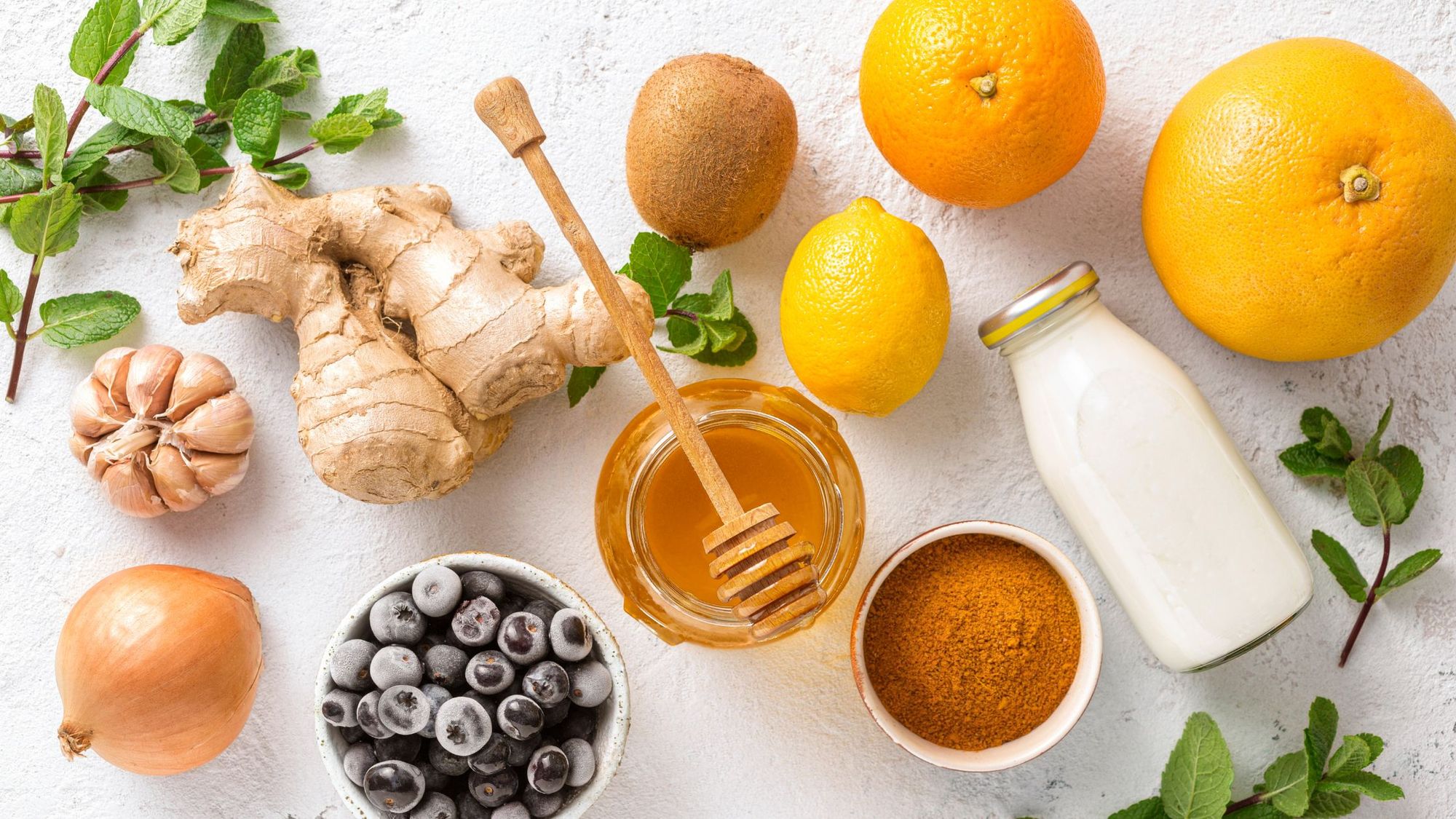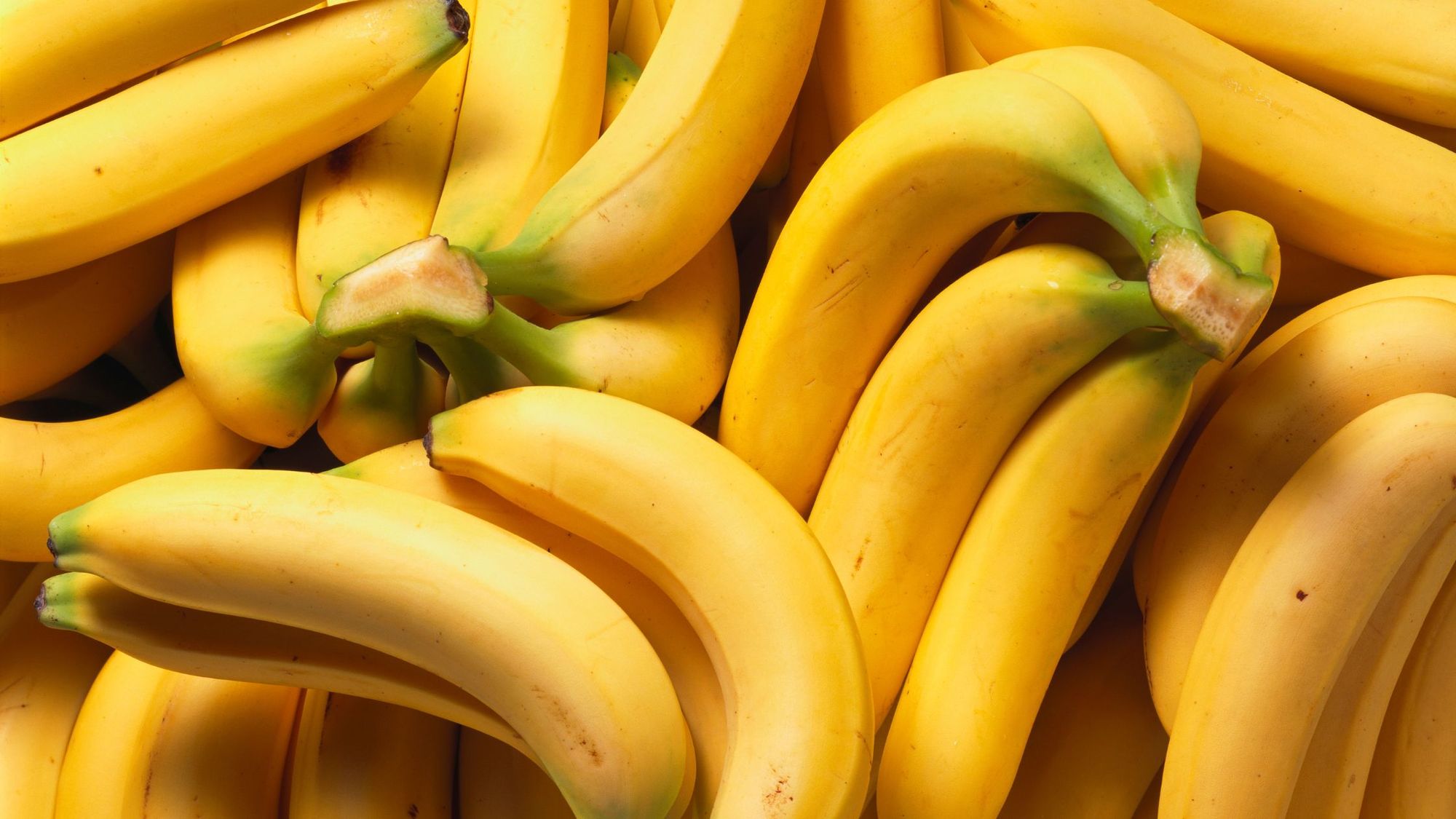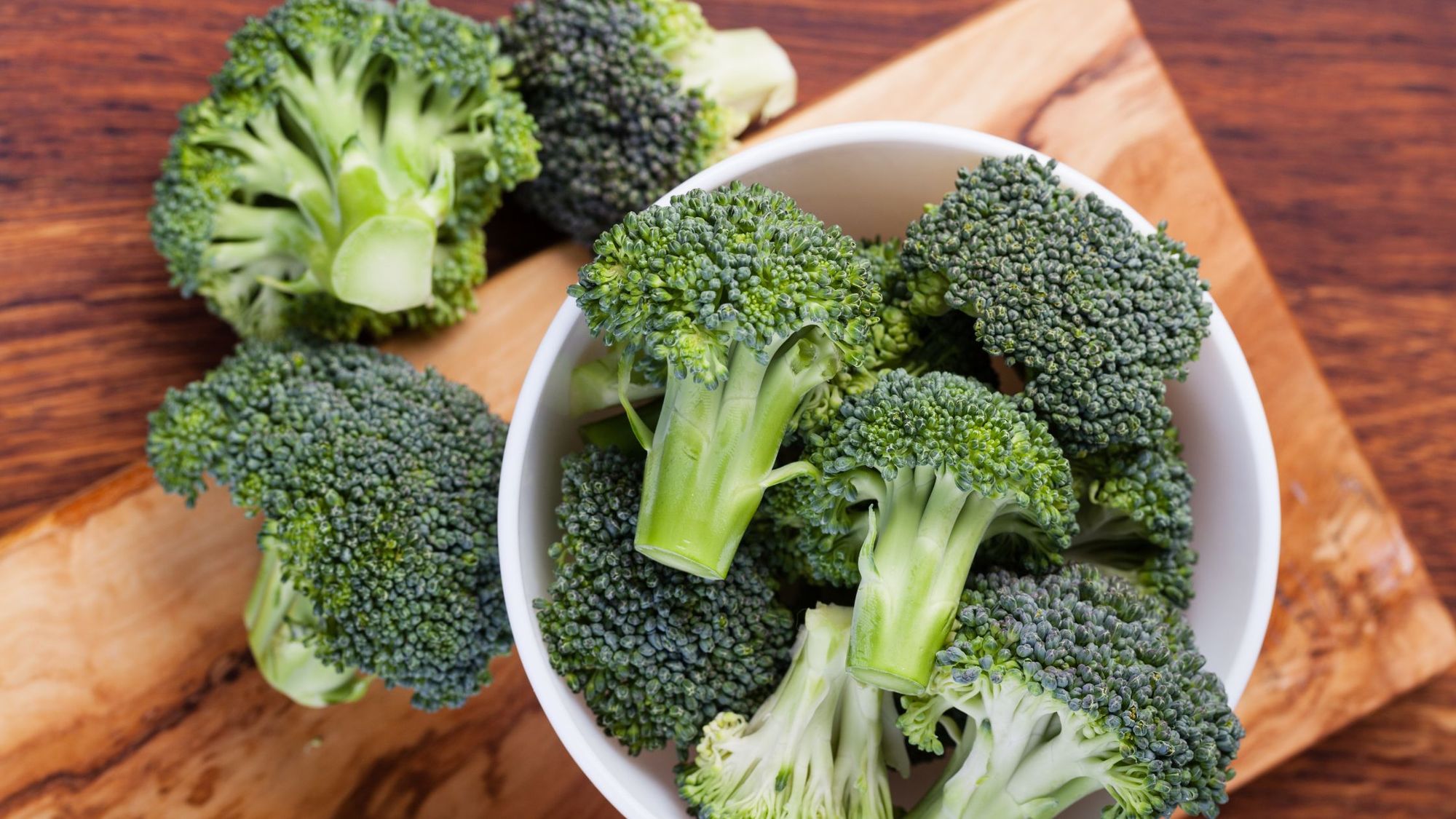
Finding natural pick-me-ups in the form of energy boosting foods is a great way to tackle mental and physical fatigue.
There are certain fruits and vegetables that are known for providing us with a boost of mental and physical energy.
While all foods provide us with energy, some foods are more effective than others at providing us with a more noticeable boost of energy. Specifically, plant-based foods are among the best sources of natural energy out there.
Plant-based foods are a much healthier source of energy than that extra cup of coffee, energy drink or caffeine pill. While extra caffeine might be tempting, too much of it could cause anxiety, headaches, irritability and insomnia.
Energy Boosting Foods: Plant-Based Energy
Fruits and vegetables are brimming with minerals, vitamins, macronutrients, and micronutrients, all perfect for fighting common sources of fatigue such as inflammation and free radicals.
Some people even suggest that following a vegan or plant-based diet can give you more energy than the typical western diet. This is partially because plant-based diets are rich in fiber, but it may also have something to do with your body using less energy to digest plants than it uses to process and digest meat, leaving you with extra energy.
So, which specific fruits and vegetables are best for delivering mental and physical energy in a natural, plant-based form?
Below are some of the best plant-based energy boosting foods:

1.Bananas
If you’re looking for consistent, sustained mental and physical energy, bananas are an excellent choice. Bananas contain high amounts of potassium, which can help regulate muscle contractions, and stop you from feeling as much physical fatigue during a workout.
Bananas therefore provide you with the kind of energy that helps boost your performance during a workout, and 1 banana can provide you with enough energy for a 90 minute workout.
According to one study, eating a banana before a workout can help increase endurance and performance just as much as drinking a carefully formulated carbohydrate drink. Bananas are also rich in B vitamins, which are essential for converting food into energy. Plus, they’re packed with antioxidants which keep the cells in your body working normally.
Bananas also contain healthy carbs, which are one of the body’s core sources of energy. Part of what makes bananas one of the top energy boosting foods is that they’re rich in fiber. Fiber helps to slow down the rate at which your body absorbs sugar (or glucose), which means you get a steadier stream of energy, rather than one quick hit.
2. Blueberries
Another of the top energy boosting foods, and a great source of antioxidants, is a cup of blueberries.
Blueberries are known as a superfood due to the many health benefits of eating them. Blueberries help protect the body from free radicals and oxidative stress, and they’re a very rich source of antioxidants.
Though many dark-colored berries are high in antioxidants, blueberries are particularly rich in anthocyanins, which have fantastic anti-inflammatory and antioxidant effects. They can help to reduce inflammation in the brain, slowing the aging process, and giving you more focus.
According to a research study, some antioxidants in blueberries can gather within the brain, boosting the transmission of data between cells. This could make blueberries the perfect snack if you’re feeling a midday slump at work and need to increase concentration.
Another study found when adults with cognitive impairments drank blueberry juice every day for 12 weeks, they noticed serious improvements in brain function.
You therefore might notice more mental energy when you eat blueberries more often.
Eat blueberries on their own, add them to a healthy smoothie, or eat them with greek yogurt for a healthy, energy-boosting snack.
3. Apples
Apples are one of the best energy boosting foods because they’re high in a natural sugar called fructose, which is quickly converted into mental and physical energy. They’re also rich in fiber, particularly if you eat the skins, which assist with balancing your blood sugar levels, and retaining your energy throughout the day, without crashes.
Alongside a number of nutrients and plenty of fiber, apples are also rich in flavonoids, a specific type of antioxidant which can reduce inflammation and stress. Apples are also high in carbohydrates, so they act as a good source of sustenance which can increase your satiety and fullness levels without any unnecessary fat or calories.
One particularly useful substance in Apples is pectin, a type of soluble fiber useful for preserving good mental health. Scientists believe this fiber can reduce depression symptoms (including fatigue), and they can also nourish the gut bacteria that leaves you feeling happier and healthier.
Cut up slices of apples for a healthy, tasty and uplifting snack. Put a tablespoon of peanut butter on your plate if you want something tasty to dip your apples in.

4. Broccoli
Most dark leafy greens, such as spinach and kale, are excellent energy boosting foods. These dark leafy greens are great plant-based energy sources. They’re high in proteins, antioxidants, and nutrients. They’re also rich in iron. Since fatigue (both mental and physical) is a common symptom of iron deficiency, increasing your iron levels with iron-rich foods could help you to retain your energy levels.
For an energy boost, broccoli is one of the most impressive leafy greens of all. It’s high in antioxidants, which eliminate free radicals causing inflammation and depression. Broccoli is also rich in vitamin K, offering more than your standard recommended daily intake in just 160 grams.
Vitamin K is great for improving cognitive performance, memory, and brain functioning. According to a research study, consuming high amounts of vitamin K can even help to protect the brain against long-term damage. Broccoli also contains a compound called glucosinolate, which slows the breakdown of acetylcholine, a neurotransmitter we need to keep our minds sharp.
5. Avocados
Avocados are a popular fruit, ideal for use in smoothies, breakfasts, and salads. Avocados contain essential nutrients, fiber, and protein, all excellent for sustaining high levels of energy. Most importantly, avocados are a source of healthy fats, which can also be beneficial if you’re feeling fatigued.
You’ll find plenty of vitamin E in avocados, which protects us against free radicals, and they’re also a great source of Vitamin C. Vitamin C is necessary for the production of crucial enzymes in the body, used to break carbohydrates and other macronutrients down into energy.
Avocados also contain the essential mineral magnesium, which is essential for energy production at a cellular level, and B vitamins such as B6, niacin, and riboflavin, which assist with releasing energy from food. They’re also a source of Vitamin K, which can help improve cognitive functioning.
Use whole grain bread and half of an avocado to make avocado toast. Save the other half of your avocado in the fridge to eat with your eggs in the morning.
6. Oranges
Oranges are perhaps one of the most popular energy boosting foods. This delicious fruit is brimming with vitamin C, an antioxidant which reduces fatigue and eliminates oxidative stress. A single medium orange can be all you need to get almost your full daily recommended intake of vitamin C.
According to one study, adults who ate more vitamin C also had better moods, and reduced instances of depression, confusion, and anger. High blood levels of vitamin C can also increase focus, memory, and attention span, making it great for people who want to retain more information.
Oranges are also one of the main plant-based sources of thiamine, or vitamin B1. This substance helps the body to process food and turn it into energy, so it can be used by every cell of your body. While there are only small amounts of thiamine in oranges, your body only needs a little bit to experience an energy and concentration boost.
7. Beets
Beets are commonly recommended as one of the best energy boosting foods for athletes, due to a number of reasons. They’re high in antioxidants, so they’re great for reducing free radicals and oxidative stress. They can minimize inflammation in the body, so you can endure physical exercise for longer, and they also include nitrates.
Nitrates are converted into nitric oxide by the body, which can relax blood vessels, improve circulation, and reduce blood pressure. Better circulation also contributes to reduced fatigue and muscle pain, as well as lower levels of inflammation.
Some studies also suggest that the nitrates found in beets can improve the mitochondrial function. Mitochondria are cells in the body responsible for oxidizing and processing food, turning them into energy for cellular function.
8. Asparagus
Similar to many plant-based foods, asparagus is brimming with nutrients and antioxidants to reduce the free radicals responsible for fatigue. They prevent oxidative stress, and can help to minimize inflammation. Asparagus is also a good source of potassium, and has a high concentration of crucial vitamins including A, C, K, and E.
The vitamin K found in asparagus can improve your cognitive functioning and help you to focus for longer. It’s also helpful for blood clotting and immune system management. The B vitamins in Asparagus are also fantastic for converting the food you eat into energy.
Asparagus is a great source of fiber, which helps to stabilize digestion and blood sugar levels, so you don’t experience crashes. Plus, asparagus contains a unique acid known as asparagine, which has been proven to reduce fatigue after intense exercise.
9. Strawberries
One of the main reasons strawberries stand out as an energy boosting food, is they’re packed with natural sugars, fructose, which the body quickly converts into usable energy. However, strawberries are also rich in antioxidants, minerals, and folates. They also contain phenols, which help the body to create energy whenever you consume food.
Strawberries contain a lot of dietary fiber, which improves gut performance, and slows the digestion of glucose, allowing for a consistent supply of energy. They’re also packed with vitamin C, which promotes better mental acuity.
These sweet fruits are a good source of folate (vitamin B9), which can help with proper cell function. They also contain iron, copper, and magnesium, which are all essential to energy and cellular processes. Strawberries even include manganese, which helps your body to process all of the other nutrients in the fruit, and supports energy production.
10. Sweet Potatoes
Sweet potatoes are a great source of energy and a good source of complex carbohydrates. These healthy carbs increase blood sugar levels for longer than simple carbs, so your energy levels stay consistent. Alongside a good dose of carbs, these energy boosting foods also contain magnesium, iron, and vitamin C, which promote good energy production at a cellular level.
Similar to bananas, sweet potatoes are rich in potassium, which helps to keep your muscles operating at their best. They also include a small amount of protein, which is one of the top macronutrients the body uses for energy. When it comes to vitamins and minerals, sweet potatoes are a powerhouse, containing high levels of vitamin A (beta carotene), and vitamin B6, which converts food into energy.
Sweet potatoes also include vitamin E and anthocyanins, which can further protect the body against oxidative damage, which can lead to fatigue, poor concentration, and other issues over time.
Sweet potatoes can be baked or made into fries by cutting them into strips and putting them in an air fryer. These are one of the top energy boosting foods out there, and the energy provided by sweet potatoes tends to be longer-lasting than other foods.
The Best Energy Boosting Foods: Final Thoughts
Everyone can stand to benefit from sourcing a natural energy boost that works for them. Too much caffeine could have adverse effects (such as the ‘jitters’ or anxiety) and it’s much healthier to find your energy boost a natural way, such as through fruits, vegetables, and other plant-based energy boosting foods.
When you’re looking for energy boosting foods to minimize physical or mental fatigue, you can’t go wrong with plant-based sources. Fruits and vegetables contain endless nutrients and vitamins to strengthen your immune function, improve cellular performance, and keep your brain sharp.
They’re also a great way to stock up on some of the nutrients you might be deficient in. Magnesium, for example, is an essential nutrient you might need more of for healthy brain function, and many fruits and vegetables contain magnesium.
You can use your CircleDNA test to determine whether you have higher needs of certain nutrients based on your DNA, and what the optimal diet plan for you is, based on your genetic makeup.
Now you can begin building your new energy-boosting diet with some of the energy-boosting fruits and vegetables listed in this article.
Remember that dehydration can also cause fatigue, so be sure to drink 8 glasses of water or more per day, to keep yourself hydrated which also improves energy levels.
References
- Insider: I followed a vegan diet for a week and it had a major impact on my energy and skin
https://www.insider.com/vegan-diet-review-2017-11#the-verdict-11 - NCBI: Effects of Dietary Fiber and Its Components on Metabolic Health
https://www.ncbi.nlm.nih.gov/pmc/articles/PMC3257631/ - NCBI: Bananas as an Energy Source during Exercise: A Metabolomics Approach
https://www.ncbi.nlm.nih.gov/pmc/articles/PMC3355124/ - NCBI: Recent Research on the Health Benefits of Blueberries and Their Anthocyanins
https://pubmed.ncbi.nlm.nih.gov/31329250/ - NCBI: Blueberry Supplementation Improves Memory in Older Adults
https://www.ncbi.nlm.nih.gov/pmc/articles/PMC2850944/ - Science Direct: Association of dietary fiber and depression symptom: A systematic review and meta-analysis of observational studies
https://www.sciencedirect.com/science/article/pii/S0965229920318884 - NCBI: The neuroprotective mechanisms and effects of sulforaphane
https://www.ncbi.nlm.nih.gov/pmc/articles/PMC6611193/ - NCBI: High Vitamin C Status Is Associated with Elevated Mood in Male Tertiary Students
https://www.ncbi.nlm.nih.gov/pmc/articles/PMC6071228/ - NCBI: Can Dietary Nitrates Enhance the Efficiency of Mitochondria?
https://www.ncbi.nlm.nih.gov/pmc/articles/PMC3049330/#:~:text=Dietary nitrates enhance mitochondrial efficiency,vitro experiments%2C Larsen et al. - NCBI: Effect of aspartate and asparagine supplementation on fatigue determinants in intense exercise
https://pubmed.ncbi.nlm.nih.gov/12660406/ - NCBI: Manganese metabolism in humans
https://pubmed.ncbi.nlm.nih.gov/29293455/





